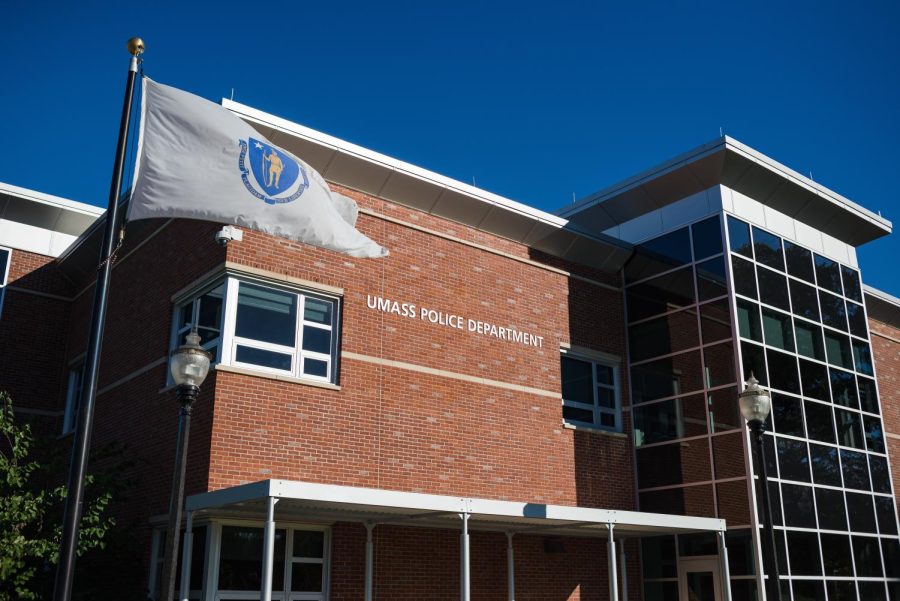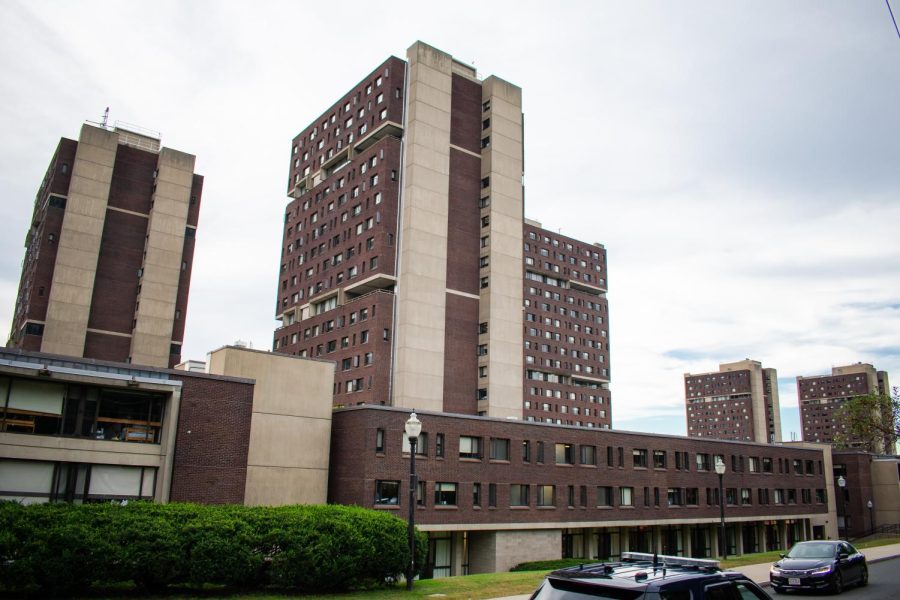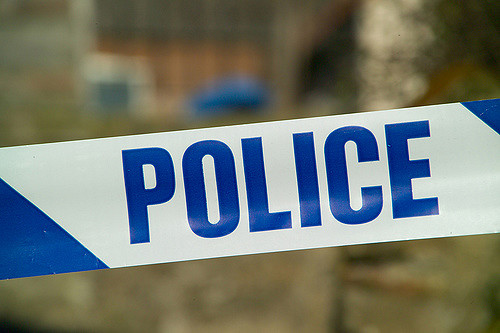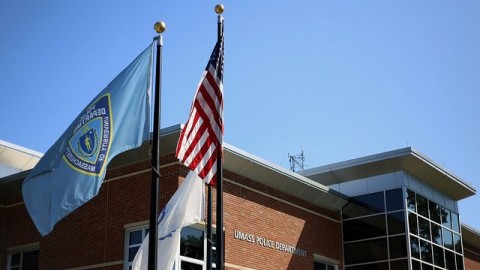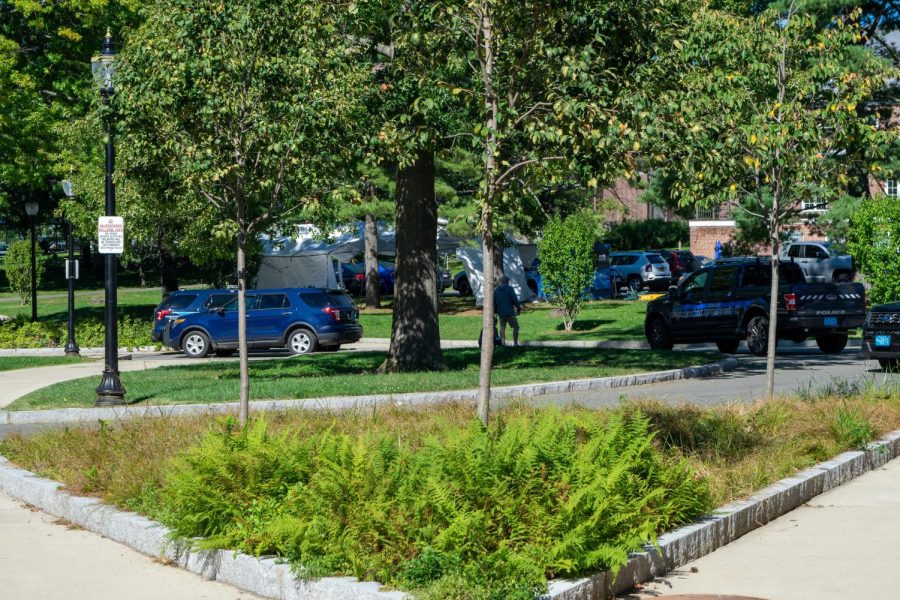
Editor’s note: In the wake of numerous reported instances of gun violence on college campuses across the nation, the Daily Collegian is running a three-part series focusing on both national incidents and how the University of Massachusetts is prepared to handle an active shooter situation on campus. This is part three.
In light of recent shootings and increased gun violence on college campuses across the United States, University of Massachusetts students have started to rethink the safety of residential and academic spaces at the University.
Although some students say they feel “perfectly safe” while living and studying on campus, others have doubts about the University’s overall security. Some believe UMass should inform its students of the safeguards it has in place to protect people on campus.
“I feel like UMass is one of those campuses that’s very open to the public…in terms of academic space, anyone can basically just walk in. You don’t have to go here and then there’s no way to know if you do go here,” said Jaenyffe Santos, a senior natural resource conservation major. “I feel like UMass doesn’t really have a solid process in case any type of shooting like that happens, and if they do I feel like students should know about it.”
Kiara Wynn, a senior theater major, agreed with Santos, saying, “I feel like anybody and everybody has access to this campus…there should be better systems.”
Wynn lives in the North Residential Area, where she says she feels generally safe because of her building’s increased security. She referred to the area as “pretty airtight and locked-down,” adding that residents must tap their UCard at three different doors before being allowed access to their own living space.
She commented on the fact that the Central, Orchard Hill, Southwest and Sylvan Residential Areas don’t have this kind of security system in place. “As long as somebody taps me in, I could get in anywhere I want…I could get in anybody’s room if it’s open,” Wynn said.
Sophomore psychology major Alexis Pascal also believes increased security should be put in place across all residential areas.
“Yesterday, I was walking to my dorm and some guy was sitting outside and he was like, ‘Oh, I’m so-and-so’s father, do you know her?’ I said, ‘No,’ but then as I opened the door he followed me in,” Pascal said.
Pascal also said, however, that she feels “pretty safe” on campus because she always sees UMass police officers around campus.
Jessica Schores, a junior nutrition major, said, “I still feel safe (after recent shootings) but in the back of my mind I always think about that because it is a big campus…but I do feel safe. The atmosphere is good I think.”
Sophomore David Conway thinks differently, saying students on campus should spend their time focusing on their studies and extracurricular activities rather than living in constant fear of a potential attack.
“I’m going to have to say I feel completely safe. You really can’t walk around campus with a feeling of being afraid all the time. Everyone has priorities, we’re trying to get an education and in addition to that, sports and everything. So I’m putting my trust in the school here and the framework they have,” he said.
Junior transfer student and environmental science major Paul Bongiorni agreed with Conway.
“I feel perfectly safe. I feel like there’s a lot of security here, I’ve never felt unsafe at any school or college I’ve ever been to,” he said. “There’s so many people here and I feel like the more people, the more protection, and everybody’s looking out for each other.”
One safeguard put in place by the University and the UMPD is a text notification system that alerts students of an emergency situation. According to interim police chief Patrick Archbald, this service is the first method that would be used to communicate with students quickly.
“That’s an opt-in system, you have to proactively put in your information into the alert system and you receive notices,” said Archbald. “Not everyone has done that by far and we would prefer to have an opt-out system. We are not getting as much compliance as we would like.”
Schores said of the system, “I think it’s better than an email because you check your texts the most.”
Another service put in place is the outdoor warning system that sounds in the case of an emergency. Archbald said this is only intended for outdoor use and it was not designed for the sounds to reach inside buildings or be heard indoor – a common misconception among many students.
A majority of students said they were in class, in the library or in other academic buildings and were unable to hear the system when it was tested last week, and many were under the impression that the warnings should be able to be heard all across campus, especially while indoors.
“I stayed home for that whole day and I didn’t hear anything. I heard nothing,” Wynn said.
“If you’re in class, no (you can’t hear it). Last year when they did it I was in Bartlett 65 and I couldn’t hear it at all…but if you’re outside I guess (it’s effective),” Pascal added.
Some students do see the system as being effective in widely issuing a warning, like Conway, who said, “I was on campus for that. I think it’s good. I heard it by the library…it’s definitely a good way to alert everybody.”
Emergency emails are also distributed to people on campus, and according to Archbald, there are currently over 40,000 subscribers to these alerts. He said initial messages are brief and to-the-point and once the threat is resolved, messages will become more detailed and informative.
Colby Sears can be reached at [email protected] and followed on Twitter @colbysears. Shelby Ashline, Brendan Deady, Stuart Foster and Anthony Rentsch contributed to this report.













